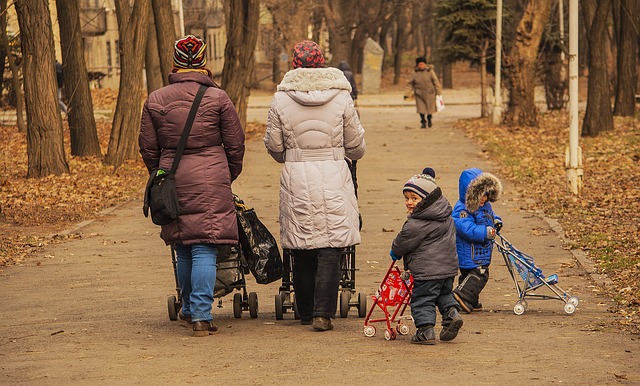Parenting is as crazy as circumnavigating the world without a map…but, oh, what a journey!
Parenting has never been more challenging than now. Living in a fast-paced, hectic world with combined challenges of such things as new technology, rapidly changing family dynamics, a 24/7 news cycle and an overwhelming educational system – all these in combination raise unrealistic expectations in individuals and parents.
What are some of the challenges faced by parents?
- Balancing parenthood and career and finding time to do justice to both.
- Disciplining children effectively.
- Promoting and guarding independence in children – a fine line in an often dangerous world.
- The costs of raising children in an uncertain economic climate.
- Being a single/sole parent and having enough support/help.
- Ensuring that children receive a good, quality education.
- Reigning in unreasonable expectations of parents and children themselves.
- Dealing with bedtime routines and the ensuing hassles.
- Managing consumerism in today’s consumer-centric society.
- Fostering and also guarding against technological influences.
“Kids are like a mirror, what they see and hear they do. Be a good reflection for them.”
-K. Heath
Sharing some of the insights on parenting…
- Even though there is a parents’ knowledge, often as a parent there is the letting go of personal judgement ie. the forgetting that “parenting is a role, not a race to the finish line.”
- Children need to be respected for being the individuals that they are with differing abilities and interests.
- Our social relationships/connections are the biggest predictors of life satisfaction. This is achieved through ‘empathy’ –a parent’s ability to raise children in tribes and settings where playtime is fostered to enhance social learning, creativity and understanding.
- Questioning whether ‘scheduling’ children so that they are kept busy and thereby becoming the best at their endeavours, is acting in their best interests. Whose expectations are being met?
- Are the decisions on ‘inclusion’ being made out of a sense of anxiety and guilt?
- In this arena of competitive parenting are parents’ expectations and the ‘bars’ of what constitutes ‘success’ being set too high?
- Children need to have the freedom to be just that, children. In the parent’s efforts to hyper-parent, studies indicate that it can lead to depression and has destructive consequences in adolescents.
- Happiness for your children has no curriculum and is reliant on so many things which are different for each child/individual.
- As a parent the very best that can be done is to protect, support and love your children, unconditionally.
- Whilst technology shouldn’t be discouraged, it does require vigilance and children being taught responsibility to use these tools wisely. The goal in doing so is to increase education and skills acquisition. Checking text histories and setting parental controls should be enforced, as does age restrictions to access certain networks.
- Older generations will argue technology is destroying conversation; younger generations will argue technology is enhancing it. It really shouldn’t be an either, or, debate. Both have a place in a fast changing world. Creating safe opportunities where both come into play is the desired outcome, while respect of the person is maintained.
- Technology can be used for consumption and creative, or destructive endeavours. Helping children to know the difference is a parent’s responsibility in raising healthy, well adjusted and resilient children.
- Self worth should never be calculated by ‘likes, shares and retweets.’ Self worth is to be found elsewhere in how individuals/or a child treats others in their family, social network and the community generally.
- Children should not believe everything that they see or read on the internet. There is the façade of happiness and success with the compulsion towards consumerism being the ultimate goals in life or measure of personal self worth.
Recently an article was brought to my attention and it was disturbing reading to say the very least. In ‘The silent tragedy affecting today’s children’ written by Victoria Prooday, Occupational Therapist, May 24, 2017, Victoria highlights that there is a steady increase in children’s mental illness, which is now reaching epidemic proportions.
Researchers (over a 15 year period of studies) concluded that children continue to live and exist in a devastating state emotionally.
- 1 in 5 children has mental health problems
- 43% increase in ADHD
- 37% increase in teen depression
- 200% increase in the suicide rate in children 10-14 years old
The good news is that it has been scientifically proven that the brain has the capacity to rewire itself through the environment. ‘Unfortunately, with the environment and parenting styles that we are providing to our children we are rewiring their brains in a wrong direction and contributing to their challenges in everyday life.’
What is wrong?
Basically, what has been stated above is reinforced in Victoria’s article. There were some points that are worth noting as being fundamental to raising healthy children…
- Emotionally available parents
- Responsibilities
- Balanced nutrition and adequate sleep
- Movement outdoors
- Creative play, social interaction, opportunities for unstructured times and boredom
Victoria adds…
Instead, children are being served with:
- Digitally distracted parents
- Indulgent parents who let kids “Rule the world”
- Sense of entitlement rather than responsibility
- Inadequate sleep and unbalanced nutrition
- Sedentary indoor lifestyle
- Endless stimulation, technological babysitters, instant gratification, and absence of dull moments
Are you feeling the heat yet?
Relax. You know, parents who are emotionally available is the primary consideration in good parenting. The other issues on the checklist as mentioned above could be introduced fairly quickly. There is nothing that can’t be addressed without some thought and preparation.
Suggestions include…
- Spend one hour a day in the outdoors: walking, biking, playing in the park, watching the birds/insects, dogs at play. It’s all about communicating enthusiastically with the children.
- Play a board game daily if possible. Reading is a winner as it fosters enquiry, imagination, and promotes reading skills – particularly if each takes turns in reading out loud.
- Enjoy a daily technology-free family dinner. This is family time to talk about what’s happened – check-in-time for family wellbeing.
- Involve children in family chores – they need to be responsible for some aspect of the running of a household. Examples could be… folding laundry, hanging clothes, unpacking groceries, packing away toys, drying of dishes. An important chore is feeding the pets….it’s so important to raise children appreciating the role of the family pet, the need for kindness and love.
- Implement a consistent night time/sleep routine with no technology access available in the room.
- In a bid to foster responsibility and independence, children need to learn skills so that they can overcome the challenges that life brings – the small ones leading to the greater ones.
- Children to pack and carry their own backpack
- If a child hasn’t packed in their lunch, don’t rush to school with it (your child won’t die of starvation or malnutrition).
You could have a contingency plan is case this occurs where your child approaches the teacher or tuckshop attendant. Peeling a banana for a 5 year old isn’t teaching them skills.
- Boredom is the time when creativity is awakened. It’s OK for children to experience this…delayed gratification isn’t a crime.
- Avoid technology during meals, in the car, restaurants and shopping malls. It’s time to foster the senses, take in the sights, sounds, smells, the steady movement of the people. This sharpens observation skills.
- Parent’s are not their child’s entertainment crew. Nurture creativity, imagination, planning through to the execution stage of projects.
- Being a child’s emotional coach is what is needed desperately today. Teaching children to recognise and deal with frustration and anger properly, learning social etiquette – greetings, sharing, table manners, and conversation skills. Learning how to connect emotionally – hugs, kisses, smiles, tickles, dancing, jumping – physical hands-on connections.
“Treat a child as though he already is the person he’s capable of becoming.”
-Haim Ginott
The final word on developing resilience in children –
Out of home activities which include volunteering, playing sport, doing paid and unpaid work encourages resilience in children. Groundbreaking research in the US (Yale University) has shown that families can reduce the impact of adverse events such as divorce, family violence, and death by developing children’s skills and experiences outside the home.
The survey author, Dr. Tammie Kwong, who drew on a survey of 63,000 boys and girls, found that one in three children aged 12-17 were flourishing, despite facing three or more adverse events. The difference was the time they spent on activities outside home.
According to Dr. Kwong, “Positive social connections appear to help youths define individual identities, provide them with a sense of belonging and attachment, and offer important opportunities to learn healthy adaptive responses to adverse experiences.”
Leading Australian psychologist, Jodie Benveniste would most likely concur with these findings and states “..introducing children to new people and situations, helps them develop new skills and capabilities.”
“Trust yourself. You know more than you think you do.”
-Benjamin Spock
Parents are the sun, moon and stars to their children. The planets, comets and stars beyond the galaxy are their social connections. The journey has many challenges.. and the future awaits with new beginnings.


